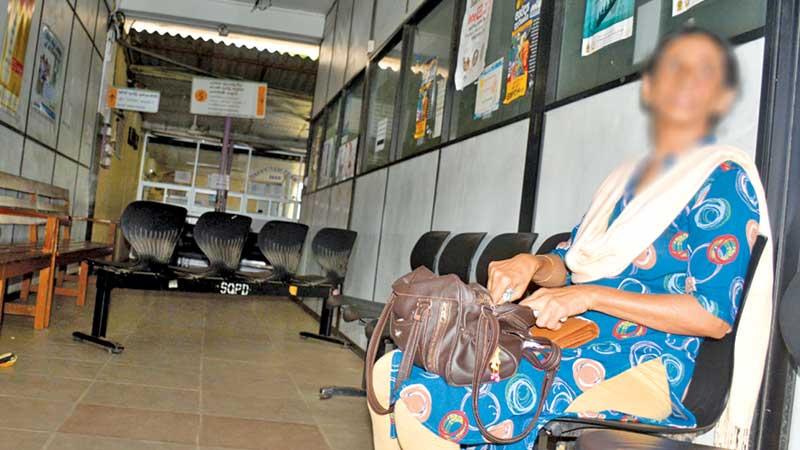
During the Dudley Senanayake Government (1965-1970), the Government Medical Officers’ Association (GMOA) launched a trade union action impacting thousands of patients in the backdrop of the interdiction of a medical officer who was found guilty of ‘negligence of duty’. More interestingly, Dr R.P. Jayewardene, the brother of the then Minister of State J.R. Jayewardene was the President of the GMOA.
Pieter Keuneman, the Communist Party leader harshly criticised the conduct of the GMOA in Parliament stating that the doctors’ trade union was creating chaos at government hospitals letting the poor to suffer. He questioned the Senanayake government as to why it had failed to take serious action against the ‘open flouting of authority’ by the doctors.
The Government’s indolence in taking action against doctors unfolded another unpleasant chapter of the GMOA’s history last Thursday (22). The ‘god likes’ as respected by the people for decades, took patients hostage and launched a one-day strike. Even though the GMOA announced their trade union action days before Thursday, the Sunday Observer met several people who had come for treatment at the National Hospital, Colombo on Thursday.
They had a mix of views. Some accused the doctors while others showed their disappointment over the government. The OPD section and room No. 3 of National Hospital remained closed throughout the day. A hospital attendant told the Sunday Observer that, about 300 people came in the morning to get medicine and had to go back empty-handed. “Generally, about 1,500 patients call over at the OPD daily. Today (22), there were only around 300. They all went finding fault with the doctors and the government,” the attendant said.
However, clinics, accident wards, maternal and children wards and cancer hospitals and military hospitals functioned as usual. GMOA Secretary Dr Haritha Aluthge told the media the reasons for their trade union action, such as making low-quality doctors, low-quality drugs, drug shortage, failure on the part of the Health Minister to introduce ‘minimum standards’ for medical studies.
“We will give two more weeks to the government to meet our demands. In the meantime, we will continue educating the public on these problems. In the event of the government failing to meet our demands, we will be compelled to take severe trade union action,” Dr Aluthge said at a press briefing on August 23.
Meanwhile, Health Minister Dr Rajitha Senaratne in Parliament on August 22 said that the Gazette on ‘minimum prescribed standards’ for medical education had been sent for print and the GMOA went on strike even after being aware of it. “The GMOA tries to get the credit that ‘minimum prescribed standards’ were introduced only as a result of their strike. It is an old trade union trick,” the Minister said.
However, Dr Aluthge quoted ‘the Daily News’ of July 31, 2017, wherein, Minister Rajitha Senaratne said that minimum prescribed standards for medical education will be brought in two weeks. It has been more than two years now! Meanwhile, the GMOA had shared a Facebook post last week, highlighting that the Health Minister was attempting to give appointments to SAITM doctors. As the post states that low quality doctors are being produced, it is questionable if the doctors trade union caused a contempt of court by this post as the PR was granted to 84 SAITM graduates based on a Supreme Court verdict.
The GMOA also claimed that ‘unqualified’ people are to be given PR by the SLMC. The SAITM graduates do not fall into this category as there is nobody in the graduates’ list falling short of GCE A/Ls. It is also important to point out that in the absence of ‘minimum prescribed standards’ for medical education, a pass or a fail at GCE A/L is not a qualification in our country to determine a person’s ability to practise as a doctor. Under the provisions of Sri Lanka Medical Ordinance, the SLMC only recognises a medical degree from one of its approved Degree Awarding Institutes.
The GMOA claimed that some medical graduates who failed all 3 subjects at GCE A/L are also to be granted PR by the SLMC. In fact, despite their unsuccessful attempts at GCE A/L, some foreign medical graduates received letters from the SLMC to the effect that they are eligible to study medicine which helped them to gain admission to to medical faculties in other countries.
In regard to complaints of a drug shortage, the Ministry officials reiterated that there was no such severe drug shortage in the country. Deputy Director-General of Medical Supply Division of the Ministry of Health, Dr D.R.K. Herath told the Sunday Observer recently that the prevalent system has reduced the possibilities of any drug shortage. There is no room for such shortage since each hospital director has been given authority to buy drugs locally, he said.
